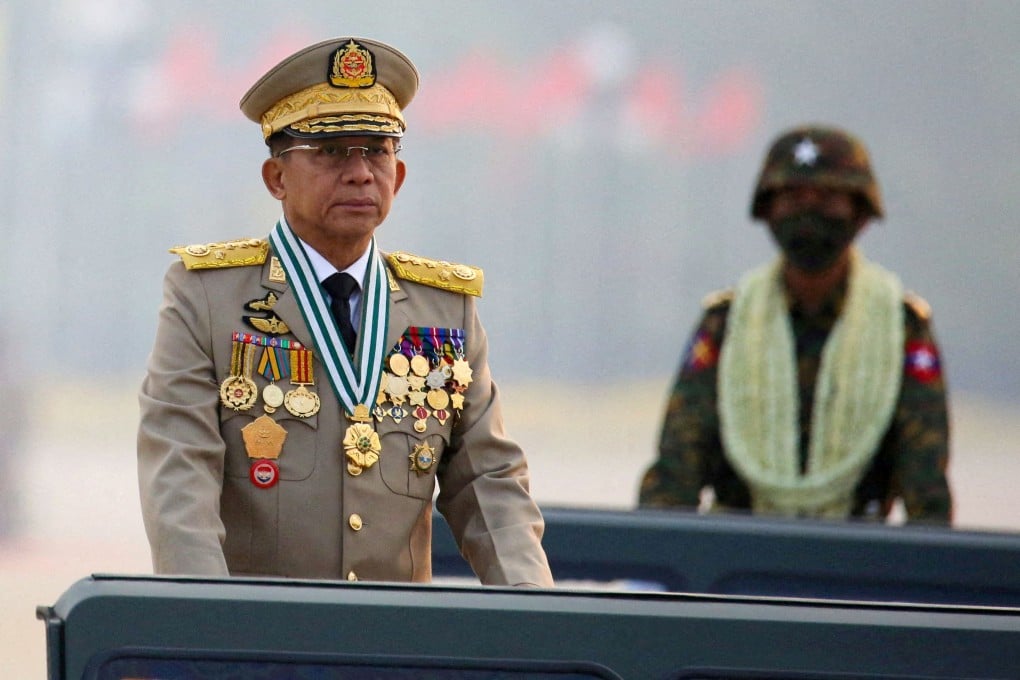Asian Angle | Myanmar’s corruption crackdown against two ‘scapegoat’ generals shows cracks within military junta
- The purge of senior military officers constitutes the regime’s biggest crackdown on corruption since the February 2021 coup
- Their downfall is a sign that Myanmar’s military regime needs a scapegoat for its economic policy failures

Before the powerful rebels launched the attack, the State Administration Council (SAC) – Myanmar’s military regime – had seemingly been less busy with securing the border region than with reshuffling top leadership and purging two confidants of SAC chief Senior General Min Aung Hlaing for corruption. This purge of former favourites constitutes the regime’s biggest crackdown on corruption since the February 2021 coup.
On October 10, Lieutenant-General Moe Myint Tun and his aide Brigadier-General Yan Naung Soe received 20-year prison sentences for treason and “violating the road map and objectives adopted by the state”. Until his arrest in September, Moe Myint Tun, once described as the successor to the current military chief, had been overseeing the SAC’s economic and financial policies. He chaired the Myanmar Investment Commission (MIC) as well as two other committees: the Central Trade Facilitation Committee, and the Foreign Exchange Supervisory Committee.
The regime had also, on November 11, sentenced another powerful general, Lieutenant-General Soe Htut, former home affairs minister, to a five-year imprisonment for “exploiting his power during his tenure”. The two lieutenant-generals were formerly Min Aung Hlaing’s most trusted deputies – to the point that he sent them to negotiate with ousted state counsellor Aung San Suu Kyi before the coup.
Moe Myint Tun’s case is more critical to the SAC since he was the key implementer of the SAC’s economic policy, including the urgent stabilisation of rising commodity prices. Military and business sources have shared with the author that the regime placed the three basic commodities of rice, oil and cooking oil under state control after the coup.

Although Myanmar produces enough rice to feed its people, it has to import oil and cooking oil. For this reason, the Central Bank of Myanmar’s provided US$600 million annually to well-connected businessmen to import cooking oil to be sold at a fixed official rate, which is much lower than the market rate. But the regime is still struggling to keep commodity prices stable. Min Aung Hlaing reportedly instructed Lieutenant-General Ye Win Oo, chief of Myanmar’s military intelligence, to investigate the reasons for the price instability. Hundreds of fuel and cooking oil importers were arrested for interrogation, followed by the arrests of Moe Myint Tun and his aides.

